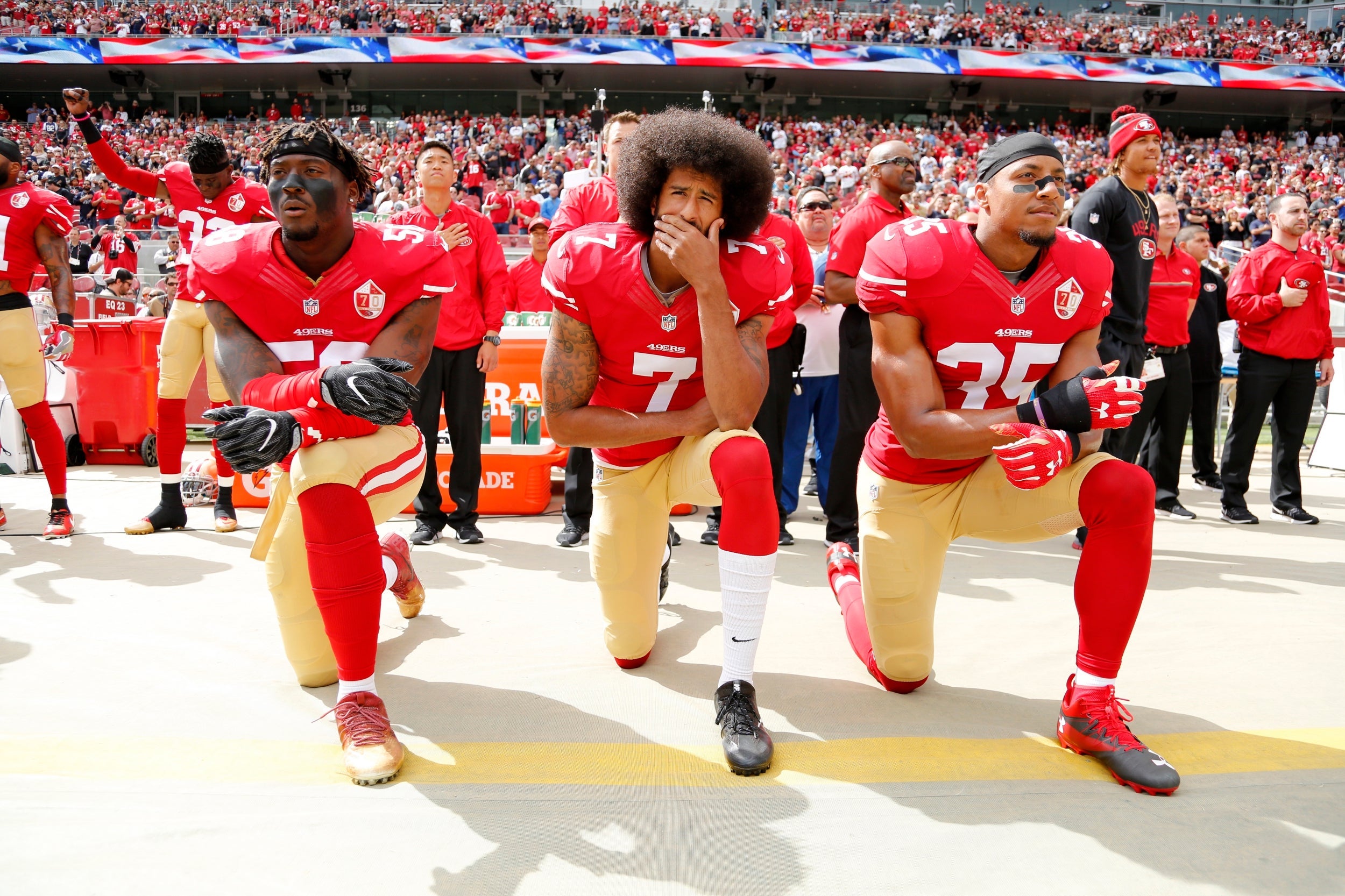Paging the NFL: When we asked for racial justice, we didn’t mean the black national anthem at football games
How about giving Colin Kaepernick a contract, for starters?

This article was originally published in 2020
Freedom, equality, justice, accountability, criminal justice reform, housing reform, reparations: just a few of the things the Black Lives Matter movement has demanded for years now. Notice, the singing of “Lift Every Voice and Sing” — the black national anthem — before each NFL game was never one of them.
Yet it was announced recently that, for the first week of the 2020 NFL season, the black national anthem will be played (ironically enough, prior to slave owner Francis Scott Key’s “Star-Spangled Banner”.) It seems the NFL has decided to take a stand against injustice through the medium of song, rather than through the medium of addressing issues directly within the League. Even Stephen Curry, Golden State Warrior’s two-time MVP, reacted to the decision by asking, “Can someone please explain to me how this solves anything?”
Colin Kaepernick, who has become somewhat of a symbol for social justice globally, has not been given a contract with an NFL team since 2016. Kaepernick’s kneeling during the singing of the national anthem, which he did to bring to light the ongoing police brutality crisis across America, has now been adopted by Premier League footballers in the UK, among others. If the NFL truly believed in social justice, offering Kaepernick a contract, as well as a place in the Hall of Fame for his sacrifices for equality, should not be that hard. Unless it puts the multi-million dollar contracts the US military has with the NFL in jeopardy, that is.
The NFL as an institution is hardly a bastion of anti-racism. Washington, Kansas City and Cleveland, among others, have all used racist slurs that invoke caricaturism of Native Americans. Dan Snyder, owner of the Washington Redskins, has stated he would “never” change the name, despite persistent protests for decades. And this week, Donald Trump himself said he saw nothing wrong with using terms like “Chiefs” or “Indians” for nicknames and mascots, and like it was “politically incorrect” to take umbrage with them.
Approximately 70 percent of NFL players are black, yet the NFL has no black owners and only two owners who are people of color. This discrepancy in wealth distribution sums up the racial divide across America. From unequal housing distribution and redlining in the 1930s, the repercussions of racist wealth distribution persists today. All NFL owners, bar one, are multibillionaires, which comes with a lot of power, including President Trump’s ear.
LeBron James has previously stated that NFL owners are "old white men" with "slave mentality” — and the lack of a voice given to NFL’s black players has resulted in some players dubbing the league as “N****s for Lease”. The unequal power dynamic has even seeped into managerial and coaching positions. Of the league’s coaches, only 3 percent are black, with some teams even appointing white coaches who have never played the sport, including Mike and Kyle Shanahan. Additionally, a mere 19 percent of the 251 NFL broadcasters in the 2018 season were black, suggesting that the problem affects the entire structure of the game from tactics to putting the finished game on a TV screen.
The NFL’s decision to play the black national anthem is yet another example of corporate America opting for symbolism over real change. It is important to listen to what black Americans are asking for and not invoke change where you see fit. Nobody asked Nancy Pelosi and other Congress members to wear Ghana’s kente cloth to work. It’s police reform that’s required. Neither were realtors asked to symbolically change the historic term “master bedroom”. Social housing reform is what’s being demanded.
Token symbolism may improve sales (like Nike's $6 billion profits since the famous Kaepernick ad) and give the appearance that a company cares. But that’s not what racial justice actually looks like. Structural change is.
Join our commenting forum
Join thought-provoking conversations, follow other Independent readers and see their replies
Comments
Bookmark popover
Removed from bookmarks